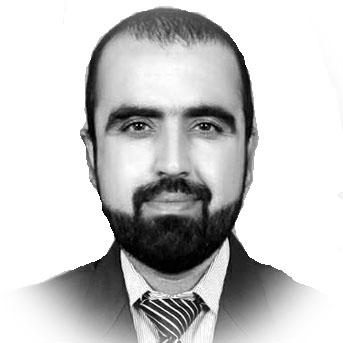Dost Muhammad Barrech
REALPOLITIK is politics or diplomacy based primarily on power and material factors rather than ideological and religious notion or ethical premises. John Bew in his book “Realpolitik: A history” describes the origin of realpolitik in international politics that emerged in the advent of European revolutions of 1848. Bew says realpolitik requires the consolidation of domestic politics and law of the stronger is the determining factor in international politics. Realpolitik coincides with realism a dominant theory of International politics that believes in no role of religion in politics and emphasizes security maximization of the state. By seeing the European history in the last three centuries, one would comprehend that their politics revolved around realpolitik rather than religion. Napoleon Bonaparte, the first emperor of France from (1795-1815) had conquered half of Europe. Conquering half of Europe was based on realpolitik, and colonization of more and more territories in Africa. Engrossingly, European States were Christian but they preferred realpolitik over religion and fought for geo-strategic and geo-economics interests. Then 19th Century witnessed deadliest World War-I and World War-II, resulted in combined 110 million casualties. The end of WW-II paved the way for two Blocs: the Capitalist Bloc led by the United States (US) and the Communist Bloc led by the {erstwhile} Soviet Union (SU). The US and the SU avoided the embroilment of religion in politics instead they were obsessed with the realpolitik to dominate the world.
I have a lucid question and want it to be answered by Muslim statecraft: Is international politics governed by realpolitik or religion? To answer the question in Hans Morgenthau’s lexicon “International politics like all politics is a struggle for power” he further articulates that all States desire to perpetuate their existence under anarchy. Resultantly, the more the state has maximum power the better it will survive in perpetuating anarchy. To analyse the Muslim world’s politics, it is crystal clear Muslim statecraft follow realpolitik too. Saudi Arabia and Iran are crucial players of Organization of Islamic Cooperation (OIC) but have been at daggers drawn and striving to accelerate their influence in the region. Muslim States cannot remain neutral; either they have to jump on the bandwagon of Saudi Arabia or Iran. Prevailing proxy wars in Yemen, Syria, Iraq and across the region are supported either by Saudi Arabia or Iran for their national interests. Use of religious card by them is mere a metaphor; their utmost aim is realpolitik to gain hegemony.
However, Iran and Iraq fought a war (1980-1988), the root causes of war were territorial and political disputes. Saddam Hussain, Iraqi President, intended to capture Iranian rich oil-producing area called Khuzestan. Iraq was supported by the US as well as Saudi Arabia and other Arab neighbouring countries to weaken Iran. Saddam even used chemical weapons not only against the Iranian troops but also against Iraqi-Kurdish civilian population whom Saddam thought to be the sympathizers of Iran. Meanwhile, Kurdish Muslims are called “an orphan nation of the world” having nearly 35 million population living in Turkey, Iran, Iraq and Syria. Realistically speaking, who has made Kurds as an orphan nation of the world? Kurds have been made an orphan nation by the Muslim States. None of the Muslim State is willing to accept their autonomy; they have been ruthlessly killed by Muslim States. Currently, an assault has been launched by Turkish government against Kurds in Syria and perceives them a threat to Turkey’s national integrity. Both Iran and Turkey have been at loggerheads for centuries but now have become on one page by virtue of Kurdish factor in the region; both States consider Kurdish Muslims as terrorist group. Obviously, realpolitik doctrine will kill the Muslim by the Muslim.
Currently, there is a hue and cry against Saudi Arabia and the UAE in Pakistan as both states are least concerned about Indian atrocities being perpetuated in India-Occupied Kashmir. One needs to understand Saudi Arabia and UAE’s stakes in India. Indians presence in the UAE is overwhelming and they have manipulated the UAE’s economy acquiring major source of remittances. The bilateral trade between India and the UEA has surpassed 50 billion dollar in 2018. India now has become second largest trade partner of the UAE. It is unlikely that the UAE will alienate India as for as Indian brutalities in Kashmir are concerned. Gulf countries are home to more than seven million Indian expatriates contributing to drive the region’s economy, keeping its cities teeming with engineers, doctors, teachers, labourers, drivers and construction workers. It is, therefore, naïve to believe that GCC countries will prefer religion over realpolitik. It is high time for Pakistani policymakers to engage into introspection, should shun an illusory sense of Muslim world. Foreign policy is always based on ground realties, foreign policy should be proactive not reactive in nature. Strengthening of Pakistan’s, economy, democracy, institutions, hard power, soft power, diplomacy and pursuit of realpolitik will set the path to the strong and independent foreign policy of Pakistan.
— The writer works at the Institute of Strategic Studies, a think-tank based in Islamabad.










